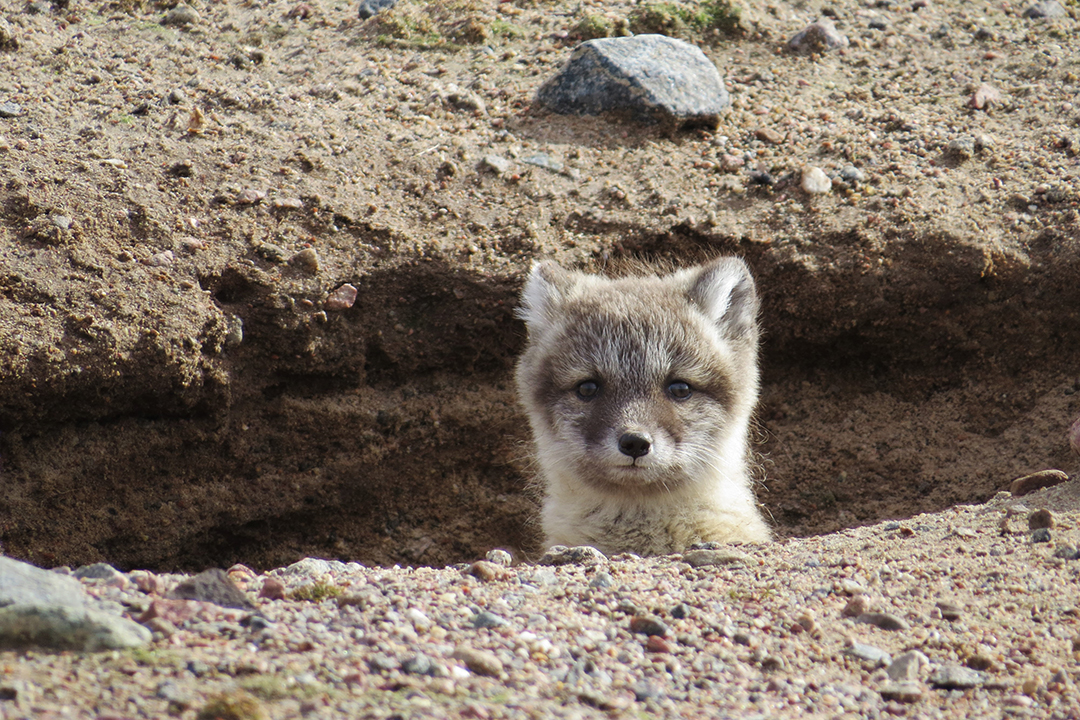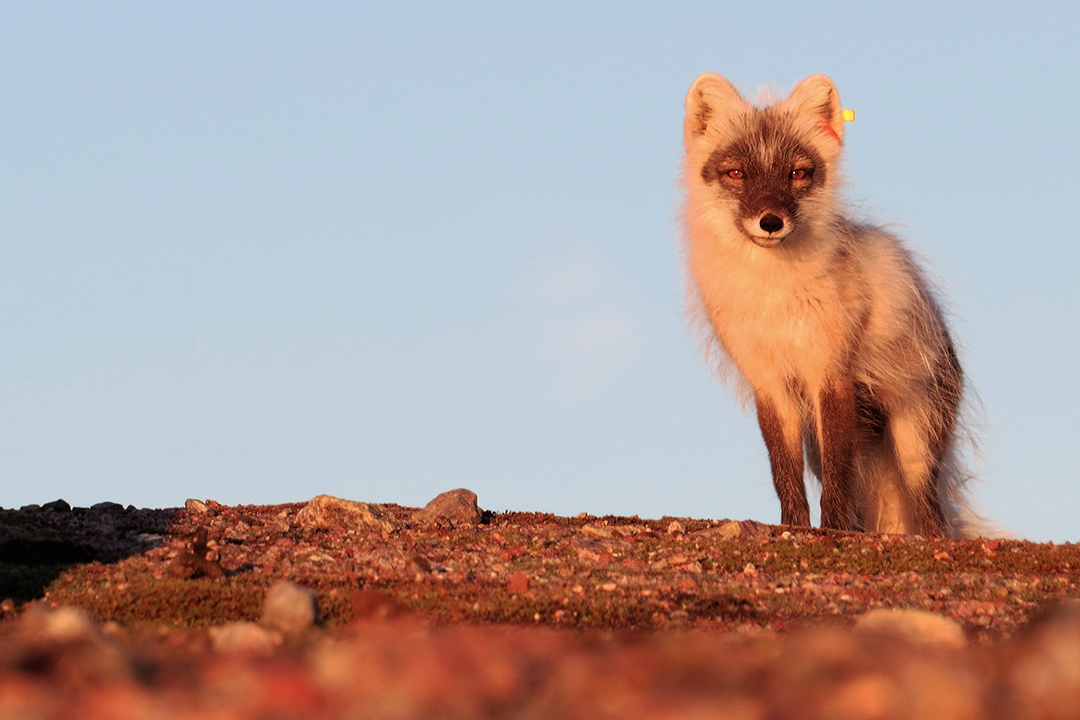
WCVM researchers part of polar report
A federal science report describing field research in Canada’s Arctic features the work of veterinary parasitologist Dr. Emily Jenkins, a professor at the Western College of Veterinary Medicine (WCVM) and University of Saskatchewan (USask) researcher.

Jenkins leads a team investigating the impact of climate change on the transmission of diseases from humans to animals in the North. The team’s work, along with other researchers’ studies, receives financial support through the Canadian government’s Polar Continental Shelf Program (PCSP).
The following excerpt, which describes Jenkins’ work, is from the PCSP report:
As the Canadian Arctic experiences warming temperatures and associated environmental changes, new wildlife species are moving north and with them, new pathogens (viruses, bacteria and parasites) that can cause disease in humans. Improved understanding of these zoonotic diseases (illnesses that can be transmitted from animals to humans) and the influences of climate change on them is required. This knowledge will help develop public health strategies to mitigate disease risk for northern communities, improve country food safety, and inform wildlife management strategies related to disease control.
Emily Jenkins and a broad research team have been examining wildlife at Karrak Lake, Nunavut, for over a decade. Their goal is to determine baselines for zoonotic disease and to predict and mitigate disease risk to public health and wildlife in this rapidly warming region. This project is part of the Polar Knowledge Canada Science and Technology Program. It involves long-term collaboration with Ray Alisauskas and Dana Kellett at Environment and Climate Change Canada (ECCC), Gustaf Samelius at the Snow Leopard Trust, and new collaborations with Patrick Leighton at Université de Montréal. The research is focused largely on Arctic foxes, which act as sentinels of change (early indicators) to disease threats in the North. Arctic foxes’ opportunistic nature leads them to a higher likelihood of being exposed to new diseases, they lack immunity to the new diseases, and they are widely distributed across the region.
The team has been collecting samples from foxes, geese and rodents to test for zoonotic diseases such as cat scratch fever, toxoplasmosis and rabies. Mosquitoes have also been collected to examine which pathogens they carry. With this information, the team will model how climate change is influencing the movement of new diseases northward and enabling the transmission of illness throughout the region.
The PCSP has supported wildlife studies at Karrak Lake through logistics planning for aircraft requirements, including co-ordinating Twin Otter aircraft flights to transport field team members and their required equipment to and from the study area.
The project team includes graduate students Émilie Bouchard, Stacey Elmore, Julie Gailius and Kayla Buhler. Their results show that some Arctic foxes at Karrak Lake carry Bartonella henselae, a bacterium that is typically carried by cats and fleas and can cause cat scratch fever in humans. Although cats are uncommon in the North, Karrak Lake is home to the world’s largest colony of snow and Ross’s geese, which have been found to carry nest fleas infected with Bartonella henselae. The research team has found that 39 per cent of fleas collected from fox den entrances and goose nests carry these bacteria, suggesting that they may be a vector to transmit the disease.
The geese were also found to carry Toxoplasma gondii, a cat parasite that can cause toxoplasmosis, and about 60 per cent of Arctic foxes at Karrak Lake are exposed. Further studies at Karrak Lake are exploring how the geese at Karrak Lake carry these two pathogens from their winter habitats and transmit them to foxes as they hunt and scavenge on the birds. This work will enable the team to determine current and emerging public health risks related to toxoplasmosis and cat scratch fever, as well as the influences of these diseases on fox reproduction and survival.
Jenkins’ team works closely with territorial and federal government health agencies to develop public messaging about disease risks and ways to mitigate them. By monitoring sentinel northern species, such as Arctic foxes, the research team will be able to detect diseases and vectors arriving in the Canadian Arctic and follow the progression of those already in the region, while also identifying current and emerging risks to country food security and safety in the North.
Source: Polar Continental Shelf Program Science Report, Natural Resources Canada, 2018. Reproduced with the permission of the Department of Natural Resources, 2019.
